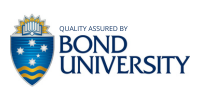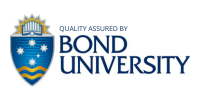Adequate nutrition and hydration are fundamental to musculoskeletal health and athletic...
.jpg?height=200&name=article%20(4).jpg)
Gain an introduction to managing common health conditions seen in children and adolescents.

Understand common medical presentations in your young patients, from mental health and child safety issues through to dermatological conditions and long-term health problems.
- This course is perfect for practitioners with no to little training in this area.
- Explore medical conditions and concerns pertinent to children and adolescents.
- This course is for medical doctors, International Medical Graduates, registered nurses, and degree-qualified health professionals.
- CPD-accredited and university-assured.
Fulfils 50 hrs for medical professionals in Australia*
100% online
$1595
Special rates available
78 hrs
Self-paced
*provided an outcome measurement activity with a minimum of 5 hours is completed.

- Be better equipped to provide early identification and intervention of developmental, behavioural, and physical health issues in children to improve patient outcomes and reduce risk of more serious problems.
- Provide holistic family health care.
- Learn strategies to promote healthy development.
- Prevent common medical problems arising in youths.
- Coordinate care with paediatric specialists and learn when referral is appropriate for complex issues.
- Manage common GP presentations such as neonatal care, asthma, vaccinations, Autism, ADHD, bites, and long-term conditions.
Get unlimited access to all course content, additional learning materials, ongoing post-course support, and more.
The module begins with the definition of neonate and outlines the importance of the neonatal period. The normal newborn behaviours such as feeding, weight gain, crying, sleeping, wet and dirty nappies are discussed. Common GP presentations in the post-partum period include the 6-week check, fever, respiratory symptoms, jaundice, rashes, DDH, umbilicus and head shape concerns. Feeding difficulties are discussed in detail. The module then focusses on supporting parents with newborn feeding and nutrition including breastfeeding, latch and milk transfer, infant sucking and tongue tie. Assessing adequacy of milk intake, signs of inadequate milk intake and ways to increase milk supply are covered in this module.
This module focuses on the fundamentals of assessing a sick child, and the presentation and management of some of the more common paediatric emergencies. The first unit details the initial assessment steps of a sick child including Paediatric Assessment Triangle (PAT) – first impression, Primary Survey (ABCDE), Secondary survey (vital signs, focused history, detailed physical examination), and ongoing assessment. Unit two focuses on resuscitation and anaphylaxis including Basic Life Support and Advanced Paediatric Life Support. The causes of vomiting and dehydration, and the assessment of severity, management and treatment of dehydration are covered. Content covers the definition and classifications of fever including evaluation guides through history-taking, examination and investigations. The final unit focuses on the steps required when assessing and examining a child with head injury. The definite and relative indications for when neuroimaging is required are discussed.
This module focuses on identifying and managing paediatric presentations of commonly seen respiratory symptoms. The first unit outlines the definition of asthma and asthma patterns including risk factors, common triggers and diagnosis. Unit two focuses on the management of asthma including assessing symptoms and triggers, discussing goals of management, choosing the initial treatment and periodically reviewing/adjusting treatment based on recent symptom control. The stepped approach to adjusting medication for children aged 1-5 years and 6-11 years, including how to manage acute asthma are discussed in detail. Information on croup and bronchiolitis conditions including clinical features, assessment, examination of severity, investigations, differential diagnoses and its management are covered in the following unit. The final unit outlines the definition and aetiology of community-acquired pneumonia (CAP). The diagnosis, investigations, management and possible indications for admission of this condition are discussed.
This module commences with an overview of vaccines focusing on active (natural or acquired) immunisation and includes passive immunisation. Vaccines contain antigens which stimulate an active immune response and mimics the host’s response to natural infection. Legal standards on testing, manufacture and vaccine production are mentioned. Vaccine components and the various types of antigens and how they work are outlined. The vaccine administration is discussed together with safety, efficacy, effectiveness, vaccine failure, adverse events and contraindications and includes recommendations for age and condition appropriate vaccines for children. Vaccines for BCG, Hepatitis B, poliomyelitis, diptheria, pertussis, tetanus, haemophilus influenzae type b, pneumococcal, rotavirus, MMR, varicella, meningococcal disease, HPV and influenza are discussed including dosage rates, delivery mode, contraindications and adverse effects. The module concludes with the principles for catch-up vaccinations.
This general dermatology module focuses on how to detect, assess and plan treatment for insect, spider and snake bites. Venomous and non-venomous bites and stings are discussed including defining the difference between a bite and a sting. Insect bite and sting reactions including managing bite allergies are detailed. Diseases transmitted by insect bites are outlined including treatment options. Clinical and dermoscopic images are used throughout the course. Identifying and managing snake bites including first aid measures are discussed.
The primary burden of disease in children and young people has shifted from infectious diseases to chronic conditions. Definitions, demographic and incident data are discussed. Tooth decay is very common in children and information is provided for the medical practitioner encountering this issue. Primary, secondary and tertiary stages of care are listed. The GP role is to listen, support, diagnosis, communicate/educate, coordinate and advocate for the patient and their family. The role of allied health support for the clinician is recognised and discussed. Key consultation strategies and considerations are covered. These include aims, communication, curve balls, breaking bad news, family considerations, non-compliance, medico-legal, child protection, mental health, adolescence and palliation. Consultation frameworks are provided. Following the FAMILY guide, five case examples are provided in managing children with asthma, ASD, school and social media influence, food allergy and spina bifida. Information about the GP’s self-care is mentioned.
.png?width=143&height=143&name=Staff%20Photos%20Circle%20(1).png)
Dr Jane Macleod is the Course Chair for this course. Jane has expertise in child and adolescent health, including developmental paediatrics, care of young people living in out-of-home care, mental health and sexual and reproductive health, including gender medicine. Jane is highly skilled in inclusive care, gender care and trauma informed care

Scientific Coordinator, Skin Cancer Unit, ASMN-IRCCS, University of Modena and Reggio Emilia, Italy
Associate Professor Caterina Longo is a board-certified dermatologist specialising in the diagnosis and treatment of skin cancers. Although providing the best care possible for patients remains her primary goal, she also committed to education and clinical research. She is actively involved in clinical research and has published numerous papers on topics related to skin cancer with an emphasis on melanoma, atypical nevi, Spitz/Reed nevi and non-melanoma skin cancer.
Caterina’s research interests are focused on the use of imaging instruments such as dermoscopy and confocal laser microscopy to recognise skin cancer early in its development. She pioneered the use of ex vivo fluorescence confocal microscopy for micrographic Mohs surgery applied for basal cell carcinoma and other visceral tumours. Caterina frequently lectures on these topics both nationally and internationally.

Doctor, Royal Hobart Hospital
Beginning her medical career in Mumbai, India, Dr Vaishali Bhalerao has 22 years of knowledge and experience to impart. She completed her master's degree and went on to establish her own private practice, which she ran successfully for 15 years. During this period she also worked as Associate Professor in a state government hospital.
Before coming to Australia, Dr Bhalerao worked in one of the NHS hospital in the UK and since arriving in Australia in 2011 she has worked in various hospitals in Tasmania and Victoria including Mercy Werribee Hospital and Sunshine Hospital.


Dr Kate Moriarty works in private general practice in Port Macquarie, Australia, where she is also a supervisor of GP registrars and of medical students. She is a senior lecturer for UNSW Rural Clinical School, Port Macquarie campus. She has special interests in women’s health and medical education.
She holds a Bachelor of Medicine (honours), Fellowship of the RACGP and a Diploma in Child Health.

Medical Educator
Dr Edmond Ng has over 30 years of international clinical practice and has published clinical research in a wide variety of medical fields. Dr Ng has been a Medical Educator-cum-Examiner for National University of Singapore, University of Melbourne, Monash University and Edith Cowan University. He is currently a Medical Educator for the Medical Board of Australia (AHPRA) to provide remedial training and education for doctors in Australia.

Dr Simon Shingler has been in general practice since 2013 and has a special interest in paediatrics.
$1595
*provided an outcome measurement activity with a minimum of 5 hours is completed.
Bundle two courses and save 5%, or three courses and save 10% upon enrolment.
Talk to us about deferred payment options, registrar scholarships and special rates.
*For Australian residents only: Online course prices are shown exclusive of GST. If you are GST-registered, please enter a valid ABN at checkout to ensure GST is not applied. Otherwise, 10% GST will be added at checkout. View our FAQ for more information.


HealthCert courses have become the standard by which you gauge all others.
Dr K. Abolarinwa
Good courses with excellent speakers. I particularly enjoyed the case study scenarios which helped to integrate the knowledge gained.
Dr A. Tucker
This is the pathway to improve your confidence and evolve into the GP you aspire to be.
Dr S. Shinwari
| RACGP Activity Number | ACRRM Activity Number | Activity Title | Education Hours | Performance Hours | Outcome Hours | ||
|---|---|---|---|---|---|---|---|
| 455749 | 31186 | Family Planning | 455749 | 31186 | 4 | 6 | 0 |
| 455726 | 31184 | Menopause | 455726 | 31184 | 4 | 6 | 0 |
| 455707 | 31182 | Polycystic Ovarian Syndrome | 455707 | 31182 | 4.5 | 6 | 0 |
| 455695 | 31181 | Sexually Transmitted Infections (STI) | 455695 | 31181 | 5 | 6 | 0 |
| 455717 | 31183 | Pregnancy | 455717 | 31183 | 4 | 6 | 0 |
| 455758 | 31187 | Breastfeeding | 455758 | 31187 | 4.5 | 6 | 0 |
| 455769 | 31188 | Domestic Abuse | 455769 | 31188 | 3.5 | 6 | 0 |
| 455734 | 31185 | Menstrual Irregularities | 455734 | 31185 | 3.5 | 6 | 0 |
| 802714 | 32991 | Sexually Transmitted Infections (STI’s) Outcome Improvement Activity | 802714 | 32991 | 0 | 0 | 8.5 |
| Total hours | 33 | 48 | 8.5 | ||||
View the CPD Hours for all HealthCert Education activities.
The purpose of outcome measurement activities is to improve your clinical confidence in managing an identified learning gap. Outcome measurement activities are not a requirement of our Professional Certificate of Advanced Certificate courses; they are a requirement for Australian CPD purposes.
HealthCert Education provides a variety of outcome measurements activities to suit your needs:
| RACGP Activity Number | ACRRM Activity Number | Activity Title | Education Hours | Performance Hours | Outcome Hours | ||
|---|---|---|---|---|---|---|---|
| 992831 | 34605 | Care of the neonate | 992831 | 34605 | 4 | 6 | 0 |
| 502648 | 31277 | Immunity and Childhood Vaccination | 502648 | 31277 | 4 | 6 | 0 |
| 992842 | 34606 | Assessment of the Sick Child | 992842 | 34606 | 4.5 | 6 | 0 |
| 992855 | 34607 | Asthma and Other Respiratory Conditions in Child and Adolescent | 992855 | 34607 | 4 | 6 | 0 |
| 852567 | 33431 | Attention Deficit Hyperactive Disorder | 852567 | 33431 | 3.5 | 5 | 0 |
| 852878 | 33434 | Autism Spectrum Disorder | 852878 | 33434 | 3.5 | 5 | 0 |
| 408259 | 28547 | Bites: Animals, snakes and insects | 408259 | 28547 | 4 | 6 | 0 |
| 859930 | 33475 | Managing Long Term Childhood Conditions Outcome Measurement Activity | 859930 | 33475 | 0 | 0 | 8.5 |
| Total hours | 27.5 | 40 | 8.5 | ||||
The purpose of outcome measurement activities is to improve your clinical confidence in managing an identified learning gap. Outcome measurement activities are not a requirement of our Professional Certificate of Advanced Certificate courses; they are a requirement for Australian CPD purposes.
HealthCert Education provides a variety of outcome measurements activities to suit your needs:
The Professional Certificate of Child & Adolescent Health is tailored for medical doctors who wish to improve patient outcomes by managing common child health issues in general practice. This qualification is stage one of the Professional Diploma of Child & Adolescent Health pathway.
The courses are suitable for physicians and degree-qualified medical practitioners, including registered nurses. There are no prerequisites.
Participants do not have to pass an IELTS test but, as the courses are delivered in English, proficiency in listening, reading and writing English is assumed. Participants will require access to a computer/laptop, an internet connection and a basic level of technology proficiency to access and navigate the online learning portal.
This certificate course meets the minimum 50 hours CPD annual requirement across all three mandatory CPD activity types, provided an outcome measurement activity with a minimum of five hours is completed. You may use an optional HealthCert outcome measurement activity or develop your own.
Outcome measurement activities are not a requirement of Professional or Advanced Certificates.
Upon successful completion of the exam, course participants will receive a Professional Certificate of Child & Adolescent Health and CPD hours.
This certificate course:
Professional Diploma Pathway
This course is the first stage of the Professional Diploma of Child & Adolescent Health pathway. The education pathway is: Professional Certificate of Child & Adolescent Health > Advanced Certificate of Child & Adolescent Health > and the Professional Diploma of Child & Adolescent Health (coming soon).
This organisation is an RACGP-accredited CPD provider under the RACGP CPD Program.




Don't see your question? Explore other faqs or talk to us.
Fees will vary based on the program and study option selected (fully online vs online + optional practical workshop). Payments can be made upfront or in monthly instalments. Special rates and various payment options are available. GP registrars and doctors in training enjoy a scholarship of up to $500. Talk to us to learn more.
Completion of any HealthCert course or attendance at an event will enable you to access the HealthCert Alumni Program which includes:
HealthCert Education is pleased to issue digital credentials for alumni. Digital credentials are a permanent online record of your successful completion of a HealthCert course and are issued to all course participants in addition to PDF certificates. If you are based in Australia, you also have the option to order a hard copy of your digital certificate for a small additional fee.
The recommended study duration of this certificate course is 78 hours, which includes study of the pre-course activities and readings, online lectures, live tutorials, and online assessment. This self-paced course offers the flexibility of 100% online study in your own time, at your own pace, in your own home or office, with no mandatory face-to-face requirements. You are not required to be online at specific times but can view and replay video lectures at your convenience.
All HealthCert courses meet World Federation of Medical Education standards. This certificate course qualifies for CPD hours from the Royal Australian College of General Practitioners (RACGP) and the Australian College of Rural and Remote Medicine (ACRRM) in Australia. It is recognised by the Royal New Zealand College of General Practitioners (RNZCGP) in New Zealand. It is recognised by the Hong Kong College of Family Physicians (HKCFP) in China. It is a self-submitted activity in Dubai and the United Kingdom. It is a self-submitted activity through the College of Family Physicians in Canada. If you live or work outside one of the above-mentioned countries, please contact us on admin@healthcert.com to discuss whether this course can be recognised in your country.
Want to stay up-to-date with the latest case studies, podcasts, free video tutorials and medical research articles pertinent to primary care?
Our Education Advisors can assist you with any queries and tailor our education pathway to suit your current expertise, interests and career goals.